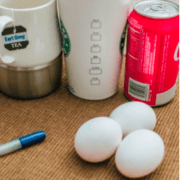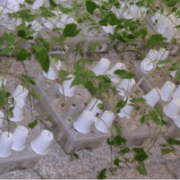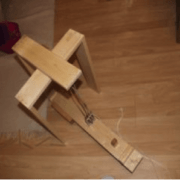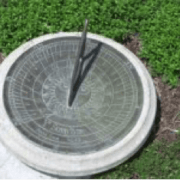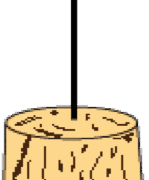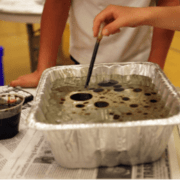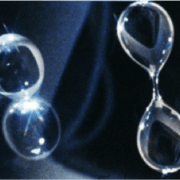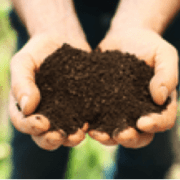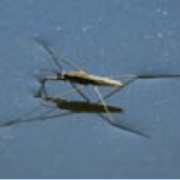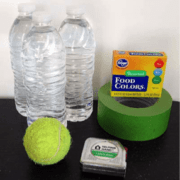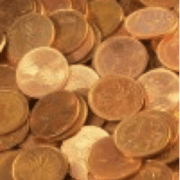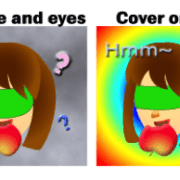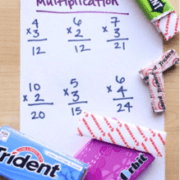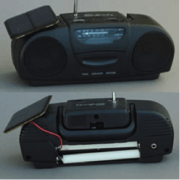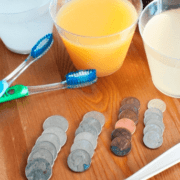By 6th grade, your child is a Science Fair expert! We have rounded up the best sixth grade science fair ideas. The projects get more and more challenging – but still very doable with minimal involvement from adults. So stay back and enjoy your child’s scientific curiosity and diligence.
In this post, we’ve assembled 19 great science fair project ideas for 6th grade. We link each project description to its original source, where you can get more information and step-by-step instructions.
Using eggs and experimenting with different liquids, you can test to see what liquids, if any, will stain teeth.
Recommended for Grade 6.
Source: www.education.com
How Do Different pH Levels Affect Bean Growth
The purpose of this experiment is to test how beans grow in different pHs, and see if the chemical used to change the pH affected the beans’ response to the different pHs.
Recommended for Grade 6.
Source: www.freesciencefairprojects.com
Correlation between ring finger length and athletic ability
Does the length of your ring finger determine how accomplished of an athlete you are? This project guides you through the steps to find out.
Recommended for Grades 6-7.
Do People Have a Dominant Side of Their Brain?
These experiments will help the scientist to determine if people have a dominant hand, foot, eye or ear. A great behavioral discovery project.
Recommended for Grades 5-6.
Source: www.faculty.washington.edu
The goal of this project is to create a compound machine using pulleys and levers that would be able to lift a Barbie doll up and down by pulling a string by the player. A common problem on the playground is that you sometimes can’t find another person to go on the teeter totter with you.
Recommended for Grades 4-6.
Source: www.projects.juliantrubin.com
Making a Simple Sundial and Testing Its Accuracy
Learn how to make a sundial and then test its accuracy with a series of experiments.
Recommended for Grades 4-6
Source: www.explorable.com
Use the Energy in a Peanut to Heat Water
Just about everything has potential energy stored in it. The problem is releasing that energy to be able to do some work.
A tiny peanut contains stored chemical energy. When we eat them, the stored energy is converted by our bodies so we can do work. We can also use the energy in a peanut to heat a container of water.
Recommended for grades 4-6
Source: www.energyquest.ca.gov
This experiment will demonstrate the detrimental effects of oil spills to marine life
Recommended for grades 4-6
Source: www.explorable.com
Make Your Own Microscope with Water
Make a simple microscope using water and take a closer look at the world around you.
The lens you create with water works like a microscope or magnifying glass, allowing you to see objects in much greater detail than if you were just looking with the naked eye.
Recommended for grades 4-6
Source: www.sciencekids.co.nz
How Does the pH of the Soil Affect the Type of Plants?
Plants’ survival can be based on the pH of the soil. This experiment lets you test soil pH based on the type of plants that live there.
Recommended for Grades 5-6.
Source: www.livescience.com
Surface tension is one of water’s most important properties. It is the reason that water collects in drops, but it is also why water can travel up a plant stem, or get to your cells through the smallest blood vessels. You can experiment with surface tension using just a few household items.
Recommended for Grades 5-6.
Source: www.hometrainingtools.com
The Mechanics of Carnival Games
This site gives you the background and instructions for answering this age old carnival question…..Why are the “simple” games at carnivals so hard to win?
Recommended for Grades 6-7.
Source: www.sciencebuddies.com
Discover which metals are best for a pot or a handle on the pot. This site guides you through the process of scientific discovery.
Recommended for Grades 6-7.
Source: www.hometrainingtools.com
This experiment tests the relationship between taste and smell. The site offers great guidelines, links for research and much more.
Recommended for Grades 6-8.
Source: www.sciencefair.math.iit.edu
Does Chewing Gum Make You Smarter?
This will test the theory that chewing gum will help you perform better on tests and other mental challenges.
Recommended for grades 6-8.
Source: www.education.com
Which Gear Gives the Best Performance in a Kart Race?
These two scientists give you all of their tips to reproduce this experiment on your own to determine who will win your race.
Recommended for grades 6-8.
Source: www.pbskids.org
How to Power a Radio with Solar Power
Learn how to power up a radio using the power of the sun!
Recommended for grades 6-8.
Source: www.makeitsolar.com
Find out what effect the water depth has on a wave’s velocity.
Recommended for Grade 6-8.
Source: www.sciencebuddies.co
This project explores the effectiveness of various cleaning solutions in cleaning tarnished and oxidized coins.
Recommended for Grades 6-8.
Source: www.education.com


